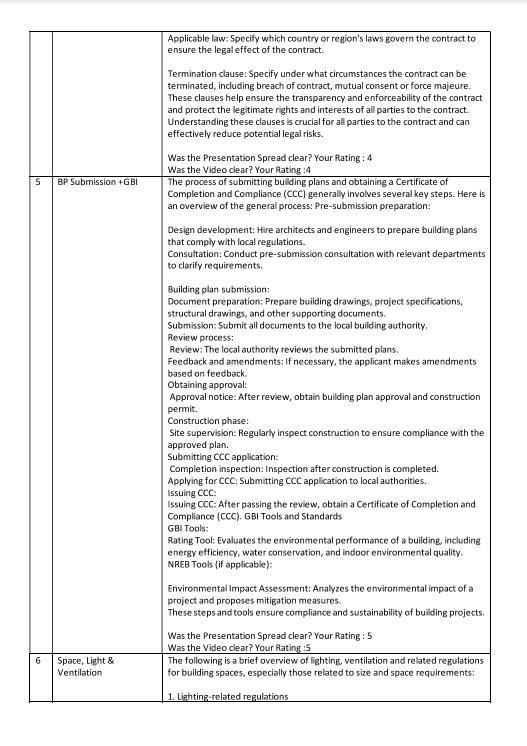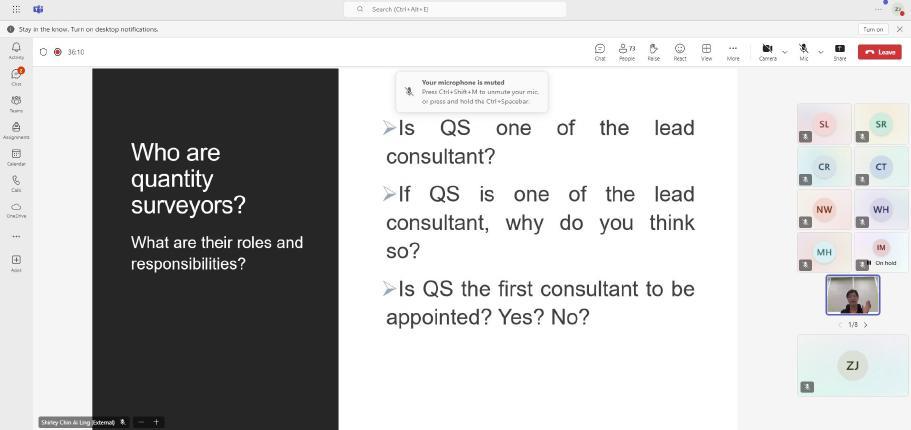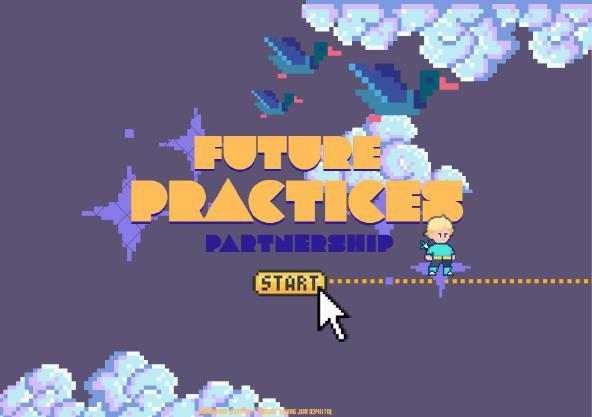

ARC 62604 PROFESSIONAL PRACTICE
E-Portfolio
ZHANGJUN0341170
BACHELOROFART(HONOURS)ININTERIORARCHITECTURE
2
TBALE OF CONTENT

ASSIGNMENT 1
SPREAD(IDR&IDCP)

SPREAD(IDR&IDCP)

SPREAD(IDR&IDCP)

SPREAD(IDR&IDCP)

SCREENSHOTS(IDR&IDCP)


















ASSIGNMENT 2

KNOWLEDGE EXCHANGE FORUM
FORUM 1 : THREATS TO THE INTERIOR DESIGN PROFESSION
FORUM 1 : Architect Acts & Rules
Topic: Threats to the Interior Design profession
Abstract: With the rise of unregistered firms offering architectural and interior design services through social media in Malaysia, professionals face growing challenges. These firms often undercut registered companies, utilizing unlicensed designers and architects, creating risks for clients and undermining industry standards. At the same time, rapid advancements in technology, including AI, are threatening to replace traditional roles in design. How can the architectural and interior design professions navigate these twin threats—illegal practices and automation—while ensuring they remain relevant, innovative, and in demand? What strategies can be employed to maintain professional integrity, embrace technology, and ensure sustainable growth in a shifting landscape? Discuss. Some articles/videos to look up before the forum starts:
https://www.bernama.com/en/news.php?id=2325910
https://themalaysianreserve.com/2024/08/23/lam-unregistered-firms-offeringarchitectural-interior-design-services-soar/
https://www.linkedin.com/pulse/future-interior-architecture-new-world-design-ai-jerrygeorge/
FORUM 1 : THREATS TO THE INTERIOR DESIGN PROFESSION

Abstract:
Thearchitecturalandinteriordesignprofessionsfacetwomainthreats:illegalpracticesbyunregisteredfirmsandtheriseoftechnology likeAI.Totacklethesechallenges,professionalsneedclearstrategiestoprotecttheirreputation,adapttochanges,andstaycompetitive.
Here'show:
1.FightingIllegalPractices
Unregisteredfirmsharmtheindustrybyofferinglower-qualityservicesthatputclientsatrisk.Tosolvethis:
StrongerRules:Governmentsandprofessionalgroupsshouldenforcestricterlawsandpenaltiesforunlicensedcompanies.
EducatingClients:Teachthepublicaboutthedangersofhiringunregistereddesigners,likepoorsafetyandquality.Realexamplesof badresultsfromillegalfirmscanhelpraiseawareness.
2.AdaptingtoTechnologyandAI
AItoolsandautomationarechanginghowdesignisdone,buttheyalsocreateopportunities.Professionalscan: EmbraceTechnology:UseAItohandlerepetitivetasks,likecreatingdrafts,sodesignerscanfocusoncreativity.
Upskill:Learnnewsoftwareandtechskillstostayahead.
HighlightHumanValue:Showclientstheuniquecreativityandproblem-solvingthatonlyhumandesignerscanprovide.
3.BuildingTrustandStayingRelevant
Tostaystrongintheindustry:
PromoteCertification:Encouragedesignerstogetlicensedtoprovetheirskillsandknowledge.
FocusonSustainability:Offereco-friendlydesignstomeetgrowingdemandforsustainablesolutions.
Collaborate:Workwithtechcompaniestousetoolsthatenhance,notreplace,designwork. Bycombiningthesestrategies,theindustrycanhandlethesechallengeswhilestayinginnovativeandvaluable.
FORUM 2: CCC
TOPIC: Local Authority
ABSTRACT: A Completion and Compliance Certificate (CCC) is an essential legal document issued by the local authorities in Malaysia. It signifies that a building project has been completed according to approved plans and complies with Malaysian building codes, regulations, and safety standards.
In Malaysia, it is mandatory to obtain a CCC before a property can be legally occupied. CCC confirms that a building is safe for occupation, emphasizing public safety. It also highlights the complexities and diligence involved in the application process, underlining the importance of transparency, adherence to regulations, and cooperation between developers and local authorities to ensure that structures meet the highest standards of safety and compliance.
These processes are often time-consuming, requiring significant administrative work and adherence to strict guidelines. In many cases, project timelines are short, placing additional pressure on architects and developers to meet the requirements within limited timeframes. This situation makes it difficult for professionals to focus on creating high-quality designs, as a large portion of their efforts are devoted to navigating these submission processes.
Here is a portion of the actual exam question in the recent LAM IDLE Exam
Which part of the question refers to CCC? What do you think about the IDLE exam?
How is CCC relevant for Interior Designers? Can we submit the Building Plan (BP) and CCC to the Local Authorities? Who is the PSP? Is a CCC still valid when a renovation/alteration to the original plans are done? How will you advise your client? Expand and discuss.
FORUM 2: CCC


FORUM 2: CCC
Abstract:TheCompletionandComplianceCertificate(CCC)isessentialinMalaysia'sconstructionanddesignindustry,ensuringbuildings aresafe,compliant,andlegaltooccupy.Here'sasimplifieddiscussionbasedonthetopicandexamquestions:
1.WhatisCCCandWhyisitImportantforInteriorDesigners?
PurposeofCCC:Confirmsabuildingissafeandmeetsapprovedplansandregulations.
RelevanceforDesigners:Whileinteriordesignersdon’tdirectlyhandleCCC,theirwork(e.g.,layouts,materials,safetyfeatures)must complywithregulationstoavoidissuesintheapprovalprocess.
2.QuestionsandAnswers
CanInteriorDesignersSubmitBPandCCC?
No.OnlythePrincipalSubmittingPerson(PSP),usuallyanarchitectorengineer,cansubmitthesedocuments.Interiordesigners collaboratewiththePSPtoensurecompliance.
WhoisthePSP?
ThePSPisaregisteredprofessionalresponsibleforsubmittingandensuringthebuildingcomplieswithregulations. IsCCCValidAfterRenovations?
Ifsignificantchangesaremadetoabuilding,theoriginalCCCmaynolongerbevalid.AneworupdatedCCCmayberequired.
AdvisingClientsonCCC
ExplaintheimportanceofCCCforlegaloccupancy.
Ensurerenovationplanscomplywithregulations.
WorkwiththePSPforupdatedapprovalsaftermajorchanges.
3.SimplifiedThoughtsonLAMIDLEExam
TheLAMIDLEexamtestsreal-worldknowledgeaboutcomplianceandcollaboration.UnderstandingCCCisvitalforinteriordesignersto workeffectivelywithinlegalframeworks.
Summary
CCCensuresbuildingsaresafeandlegallyusable.InteriordesignersmustaligntheirworkwithregulationsandcooperatewiththePSPto avoiddelaysorlegalissues.Clearcommunicationandcompliance-focusedplanningarekeywhendealingwithCCC-relatedmatters.
FORUM 3 : UBBL FIRE SAFETY
Topic: UBBL guidelines on fire safety in buildings.
Abstract: Building designs comply with Malaysia's Uniform Building By-Law (UBBL) 1984, combining both passive and active fire protection systems for comprehensive safety measures. Can UBBL guidelines be further improved to address emerging challenges and advancements in fire safety? What recommendations would you propose for improving the effectiveness of UBBL guidelines in ensuring fire safety in buildings but not limiting architectural design and innovation? (Make references to UBBL when giving your opinion.) We must have adequate knowledge of Fire requirements for the spaces we design. Discuss in detail why Fire Safety is important for Interior Designers, and not only Architects. Discuss. Some articles/videos to look up before the forum starts:
1. Designing for Fire Safety: fighting fires from the outside and the inside of buildings
2. RURB-DCP WEBINAR SERIES #28: The Compliance of Fire Safety Design in Building Based on UBBL 1984

FORUM 3 : UBBL FIRE SAFETY

Firesafetyisacrucialpartofbuildingdesign,andinteriordesignersplayanimportantrolealongsidearchitects.Theirchoicesdirectly affecthowsafeaspaceisduringafire.Here'sasimplifieddiscussion: WhyFireSafetyMattersforInteriorDesigners
SpaceLayoutandUse1.
Interiordesignersplanspaces,andpoorlayoutscanblockexitsorslowevacuation. Materialsusedininteriors(e.g.,fabrics,finishes)canincreasefirerisksifnotchosencarefully. EscapeRoutes2.
DesignersmustensurepathwayslikecorridorsandexitsfollowUBBLrules,suchasClause165,whichrequiresclearandwideescape routes.
3.
ActiveFireSystems
Interiorelementsmustnotblockfiresystemslikesprinklers,alarms,orsmokedetectors,asrequiredbyUBBLClause225.
ProfessionalResponsibility4.
Creatingsafe,compliantspacesbuildstrustandmeetsethicalstandardsindesign. ChallengesandRecommendationsforImprovingUBBL Challenges
ModernMaterials 1
NewmaterialsortechnologiesmaynotfullyalignwithUBBL’scurrentguidelines. InnovativeDesigns 2
Balancingcreativitywithfiresafetyrulescanbechallengingforarchitectsanddesigners. Recommendations
UpdateUBBLforNewInnovations 1
Regularlyreviseguidelinestoincludeemergingmaterialsandconstructionmethods. EncourageFlexibleCompliance2. Allowalternativesolutions,suchasperformance-baseddesigns,aslongasfiresafetystandardsaremet. IncreaseTrainingforDesigners3.
Providemoreeducationonfiresafetyforinteriordesignerstoensurecompliancefromthestartofaproject. Conclusion
Firesafetyisn’tjustanarchitect’sjob;interiordesignersmustalsounderstandandfollowUBBLguidelinestocreatesafeandfunctional spaces.Keepingupwithfiresafetyrulesandadaptingtonewchallengesensuresbetterdesignsandsaferbuildings.


PDW SUMMARY
PROFESSIONAL DEVELOPMENT WEEK
PDW 01 : Support Local Design Dialogue
Date: 19th Oct’24, Friday
Time: 14. 00pm - 16.00 pm
Speaker:Johnny Chlu/Suzy Sulaiman




PROFESSIONAL
DEVELOPMENT WEEK 01
PDW 01 : Support Local Design Dialogue
Date: 19th Oct’24, Friday
Time: 14. 00pm - 16.00 pm
Speaker:Johnny Chlu/Suzy Sulaiman
Abstract: Why Support Local Design?
Cultural Preservation 1.
Local design reflects the traditions, history, and stories of a community.
By supporting local designers, we protect and celebrate unique cultural expressions.
Economic Growth 2.
Investing in local talent stimulates the economy by creating jobs and promoting small businesses.
Local designs often have a distinct appeal, boosting industries like tourism and retail.
3.
Sustainability
Local production reduces the carbon footprint by minimizing transportation and emphasizing locally sourced materials.
Encouraging sustainable practices in local design promotes environmentally conscious communities.
Creative Innovation 4.
Local designers bring fresh perspectives that can inspire new trends and ideas. Collaboration between designers fosters a culture of continuous improvement and innovation.
Conclusion
Supporting local design strengthens cultural identity, boosts the economy, and fosters innovation. By creating dialogues and building networks around local talent, communities can ensure that their unique voices are heard and celebrated on a global stage.
PROFESSIONAL DEVELOPMENT WEEK 02
PDW 02 : “Challenges and Opportunities in the Design Industry”
Date: 14th Nov’24, Friday
Time: 11.30 am - 12.30 pm
Speaker:CULT CREATIVE




PROFESSIONAL DEVELOPMENT WEEK 02
FORUM 02 : “Challenges and Opportunities in the Design Industry”
Date: 14th Nov’24, Friday
Time: 11.30 am - 12.30 pm
Speaker:CULT CREATIVE
Abstract:
1.
Modern Materials
New materials or technologies may not fully align with UBBL’s current guidelines.
Innovative Designs 2.
Balancing creativity with fire safety rules can be challenging for architects and designers.
Recommendations
Update UBBL for New Innovations
1. Regularly revise guidelines to include emerging materials and construction methods.
Encourage Flexible Compliance 2.
Allow alternative solutions, such as performance-based designs, as long as fire safety standards are met.
Increase Training for Designers 3.
Provide more education on fire safety for interior designers to ensure compliance from the start of a project.
Conclusion
Fire safety isn’t just an architect’s job; interior designers must also understand and follow UBBL guidelines to create safe and functional spaces. Keeping up with fire safety rules and adapting to new challenges ensures better designs and safer buildings.
PROFESSIONAL DEVELOPMENT WEEK 03
PDW 03: "Appreciating Neurodiversity at Work"
Date: 14th Nov’24, Friday
Time: 2.00 PM - 3.00 PM
Speaker:SLB (SCHLUMBERGER)


PROFESSIONAL DEVELOPMENT WEEK 03
PDW 03: "Appreciating Neurodiversity at Work"
Date: 14th Nov’24, Friday
Time: 2.00 PM - 3.00 PM
Speaker:SLB (SCHLUMBERGER)
Abstract:
Technology Changes
AI and automation are taking over some tasks, reducing demand for traditional skills.
Designers must keep learning new tools to stay relevant.
Sustainability
More clients want eco-friendly designs, which require balancing beauty, function, and the environment.
Global Competition
Remote work allows clients to hire designers from anywhere, increasing competition.
Cost Pressures
Many clients focus on saving money, leading to tight budgets and timelines.
Designers must follow stricter rules, like safety and accessibility, to avoid problems.
Opportunities
Using New Technology
AI can handle boring tasks, letting designers focus on creativity.
Virtual reality helps show clients realistic previews of designs. Sustainability Advantage
Offering eco-friendly designs can attract more clients.
Teamwork Across Fields
Collaborating with experts in tech or engineering can lead to better, innovative designs.
PROFESSIONAL DEVELOPMENT WEEK 04
PDW 04: "Sustainable Development Goals in Engineering"
Date: 14th Nov’24, Friday
Time: 3.30 PM - 4.30 PM
Speaker:IEM (THE INSTITUTION OF ENGINEERS MALAYSIA)




PROFESSIONAL DEVELOPMENT WEEK 04
PDW 04: "Sustainable Development Goals in Engineering"
Date: 14th Nov’24, Friday
Time: 3.30 PM - 4.30 PM
Speaker:IEM (THE INSTITUTION OF ENGINEERS MALAYSIA)
Abstract:
Why SDGs Matter in Engineering
Addressing Global Challenges
Engineers help tackle issues like climate change, clean water access, and energy efficiency, which align with SDGs such as Goal 6: Clean Water and Sanitation and Goal 7: Affordable and Clean Energy.
Sustainable Infrastructure
Developing green buildings, smart cities, and resilient infrastructure supports Goal 9: Industry, Innovation, and Infrastructure and Goal 11: Sustainable Cities and Communities.
Reducing Environmental Impact
Engineering solutions can minimize waste, improve recycling, and lower carbon footprints, contributing to Goal 12: Responsible Consumption and Production and Goal 13: Climate Action.
Improving Quality of Life
Innovations in healthcare, transportation, and energy access directly impact Goal 3: Good Health and Well-being and Goal 8: Decent Work and Economic Growth.
Challenges and Opportunities
Challenges
High costs of sustainable technologies. Resistance to change in traditional industries.
Opportunities
Growing demand for sustainable projects opens up new markets and funding.
Global collaboration offers access to shared knowledge and resources.
PROFESSIONAL DEVELOPMENT WEEK 05
PDW 05: "The Big 5 Strategic Communication Imperatives for 2025 and Beyond"
Date: 15th Nov’24, Friday
Time: 11.30 PM - 12.30 PM
Speaker:PERSPECTIVE STRATEGIES



PROFESSIONAL DEVELOPMENT WEEK 05
PDW 05: "The Big 5 Strategic Communication Imperatives for 2025 and Beyond"
Date: 15th Nov’24, Friday
Time: 11.30 PM - 12.30 PM
Speaker:PERSPECTIVE STRATEGIES
Abstract:
Strategic communication is evolving with new challenges and expectations. Here are five key areas organizations must focus on:
Embrace Digital Tools
Why: Digital platforms dominate communication.
How: Use AI for personalized messaging, and adopt AR/VR for engaging content.
Be Authentic and Transparent
Why: People value honesty.
How: Share openly about challenges and listen to stakeholder feedback.
Highlight Sustainability
Why: Environmental concerns are rising.
How: Promote green initiatives with real data, avoiding "greenwashing."
Promote Diversity
Why: Inclusivity builds global connections.
How: Reflect diverse cultures and voices in campaigns.
Prepare for Crises
Why: Quick, empathetic responses are crucial.
How: Create flexible crisis plans with real-time updates.
Conclusion
By focusing on these imperatives, organizations can stay relevant, build trust, and succeed in a fast-changing world.
PROFESSIONAL DEVELOPMENT WEEK 06
PDW 06: "Career Pathways of Quantity Surveyors in the Construction Industry: Emerging Roles and Evolving Responsibilities"
Date: 15th Nov’24, Friday
Time: 3.30 PM - 4.30 PM
Speaker:PEMBINAAN TUJU
SETIA




PROFESSIONAL DEVELOPMENT WEEK 06
PDW 06: "Career Pathways of Quantity Surveyors in the Construction Industry: Emerging Roles and Evolving Responsibilities"
Date: 15th Nov’24, Friday
Time: 3.30 PM - 4.30 PM
Speaker:PEMBINAAN TUJU
SETIA
Abstract:
Career Pathways of Quantity Surveyors in the Construction Industry
Quantity surveyors (QS) play a critical role in construction, and their responsibilities are expanding to meet industry demands.
Traditional QS Roles
Cost Management: Preparing budgets and managing costs.
Contract Administration: Handling contracts and compliance.
Project Monitoring: Ensuring financial control during construction.
Emerging Roles
BIM Expertise: Using Building Information Modelling to manage cost and design data.
Sustainability: Evaluating green materials and supporting eco-friendly projects.
Risk Management: Identifying risks and ensuring value for stakeholders.
Dispute Resolution: Advising on contracts and resolving legal issues.
AI and Data Analytics: Leveraging technology for cost modeling and decision-making.
Conclusion
As the industry evolves, quantity surveyors must embrace technology, sustainability, and diverse opportunities to remain indispensable in construction.
PROFESSIONAL DEVELOPMENT WEEK 07
PDW 07:"Risk Management in Events: How to Plan for the Unexpected"
Date: 15th Nov’24, Friday
Time: 4.30 PM - 5.30 PM
Speaker:PLACE BORNEO




PROFESSIONAL DEVELOPMENT WEEK 07
PDW 07:"Risk Management in Events: How to Plan for the Unexpected"
Date: 15th Nov’24, Friday
Time: 4.30 PM - 5.30 PM
Speaker:PLACE BORNEO
Abstract:
Key Risks in Event Management
Health and Safety Risks 1.
Examples: Accidents, medical emergencies, or overcrowding.
Solution: Develop emergency response plans and ensure safety measures like first aid stations and trained staff.
Weather-Related Risks 2.
Examples: Rainstorms or extreme temperatures affecting outdoor events.
Solution: Have backup venues or contingency plans for weather changes.
Technical Failures 3.
Examples: Equipment malfunctions, power outages, or network issues.
Solution: Test equipment beforehand and have backups ready.
Financial Risks 4.
Examples: Budget overruns or insufficient ticket sales.
Solution: Track expenses closely and secure sponsorships or insurance.
Security Risks 5.
Examples: Theft, vandalism, or unauthorized access.
Solution: Hire trained security personnel and implement entry control systems.
Logistical Risks 6.
Examples: Delays in transportation or supply deliveries.
Solution: Plan schedules carefully and have alternative suppliers.


ASSIGNMENT 3
SPREAD(PARTNERSHIP)

SPREAD(PARTNERSHIP)

SPREAD(PARTNERSHIP)

SPREAD(PARTNERSHIP)

SCRENTSHOT(PARTNERSHIP)











ASSIGNMENT 4
S S I G N M E

A S S


4.1 INDIVIDUAL PRESENTATION SPREAD

